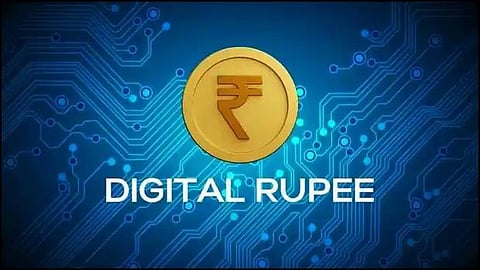

The Reserve Bank of India earlier in one of its tweets confirmed that the pilot test associated with retail e-rupee CBDC (Central Bank Digital Currency) will begin on December 1st, 2022 on Thursday this week.
The country’s central bank has detailed some of the features that will CBDC offer and its further plan in the days to come associated with the project.
But what is retail e-rupee and how can one make use of it:
CBDC is a currency in the digital form which will be based on a technology called decentralized ledger, this will be similar to blockchain technology which controls the entire cryptocurrency system but, in this case, it will be regulated by RBI.
What will the e-Rupee offer?
In the roaster informing about the e-rupee, RBI said that its pilot project will be covering select locations in a closed group of users which will be made of merchants and customers. The entire system will work exactly on the same principle as done in the existing currency although a digital token will be used for it instead.
After that, all these tokens will be used by the intermediaries which comprise the commercial banks, and obviously, the users will be able to transact using digital wallets offered by the banks participating in it, besides having the option of storing these tokens on their mobile devices.
Transactions mode in CBDC will both be P2P and P2M which is Person to Person and Person to Merchant, which can be done just by scanning a QR Code as it is done in UPI.
The e-Rupee offers features of physical cash like trust, safety, and, final settlement since it will be legal tender. The RBI has also been very specific in saying that the e-Rupee will not be an incentive-bearing currency and you'll be able to convert it into other forms like deposits with banks.
Insights on the e-rupee pilot project:
The prime objective of the pilot project is to understand the technology’s robustness and efficacy and process the creation of digital rupee, distribution, and storage in real time. Alongside the creation of different applications and the features associated with e-rupee in the time to come.
At present, a total of eight banks have been earmarked to assist the RBI in the phased-wise project. In the first phase banks like State Bank of India, ICICI Bank, Yes Bank, and IDFC First Bank will be handing their expertise in four cities across the country. The second phase will include four other banks, Bank of Baroda, Union Bank of India, HDFC Bank, and Kotak Mahindra Bank will be joining it later.
Among the four premier cities that will be covered initially are Mumbai, New Delhi, Bhubaneshwar, and Bengaluru, which will be later extended to Ahmedabad. While in the next phase Gangtok, Guwahati, Hyderabad, Indore, Kochi, Lucknow, Patna, and Shimla will join in.